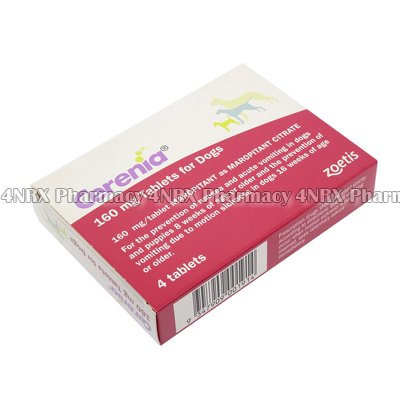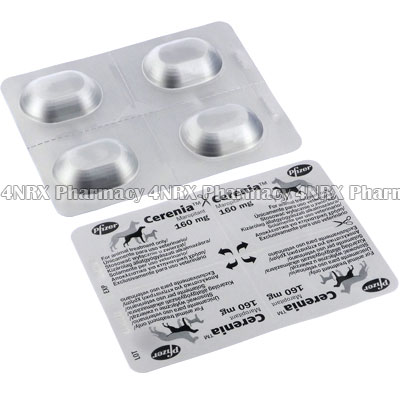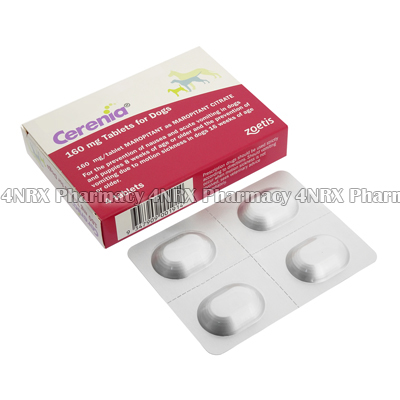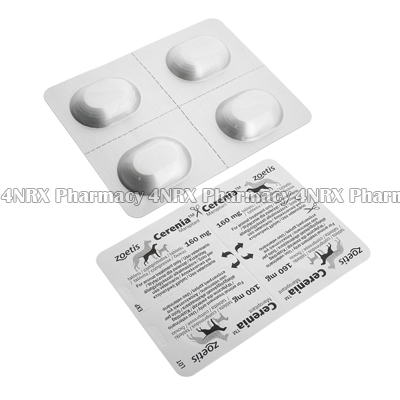 |
Home  4NRX Pet Pharmacy 4NRX Pet Pharmacy  Cerenia (Maropitant) Cerenia (Maropitant) |
|
|||||||||
|
|
Cerenia (Maropitant)
What is Cerenia (Maropitant) used for? Cerenia (Maropitant) is an oral medication used to prevent motion sickness or vomiting in dogs. It is a neurokinin receptor antagonist that reduces sensations of nausea by treating the area of the brain responsible for vomiting. It may also be recommended by your veterinarian to treat other unlisted conditions. How should I use Cerenia (Maropitant)? Cerenia (Maropitant) should always be used according to your veterinarian's instructions to ensure the safest and most effective results from treatment. One tablet is normally administered just before travel when treating motion sickness or once daily when controlling vomiting. It should be taken whole and unbroken to ensure the correct results are experienced. The tablets can be hidden in food or a treat to aid administration if you have trouble giving the doses. Ask your veterinarian any questions you have about using the medication to ensure the correct administration. What are the side effects of Cerenia (Maropitant)? When administered correctly, the use of Cerenia (Maropitant) will not normally cause side effects in most pets. Immediately inform your veterinarian if you do notice any unusual symptoms affecting your dog or cat such as loss of appetite, drowsiness, drooling, or diarrhea. These may require reduced dosages or administration frequency to prevent further complications from occurring. Please Note Strictly follow all instructions provided to you by your veterinarian or pharmacist while using Cerenia (Maropitant). Optimum and safe dosage can differ based on the animal and the condition being treated. As this medication may be unsafe for certain pets, it is essential you always inform your veterinarian if your pet is pregnant or breastfeeding, as well as if it has any allergies, other illnesses, or ongoing health conditions, and if it is taking any other form of medication, supplements, or herbal products. Immediately seek emergency medical care if your pet has an allergic or hypersensitive reaction. Common signs of a reaction include hives, swelling, skin rashes, chest pains, as well as trouble breathing or swallowing. 



|
||||||||||||||||||||||